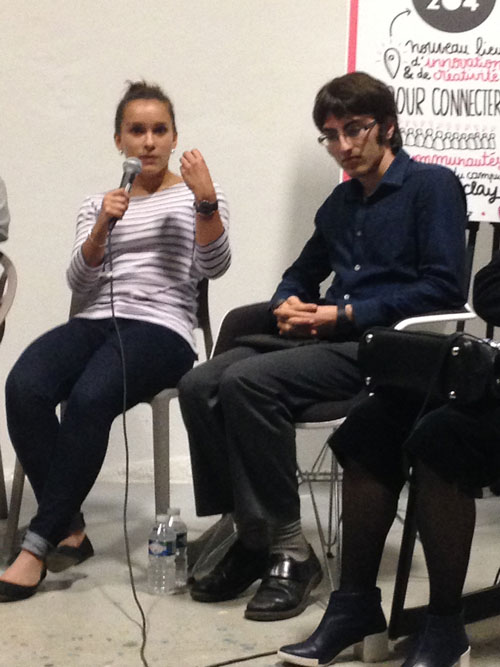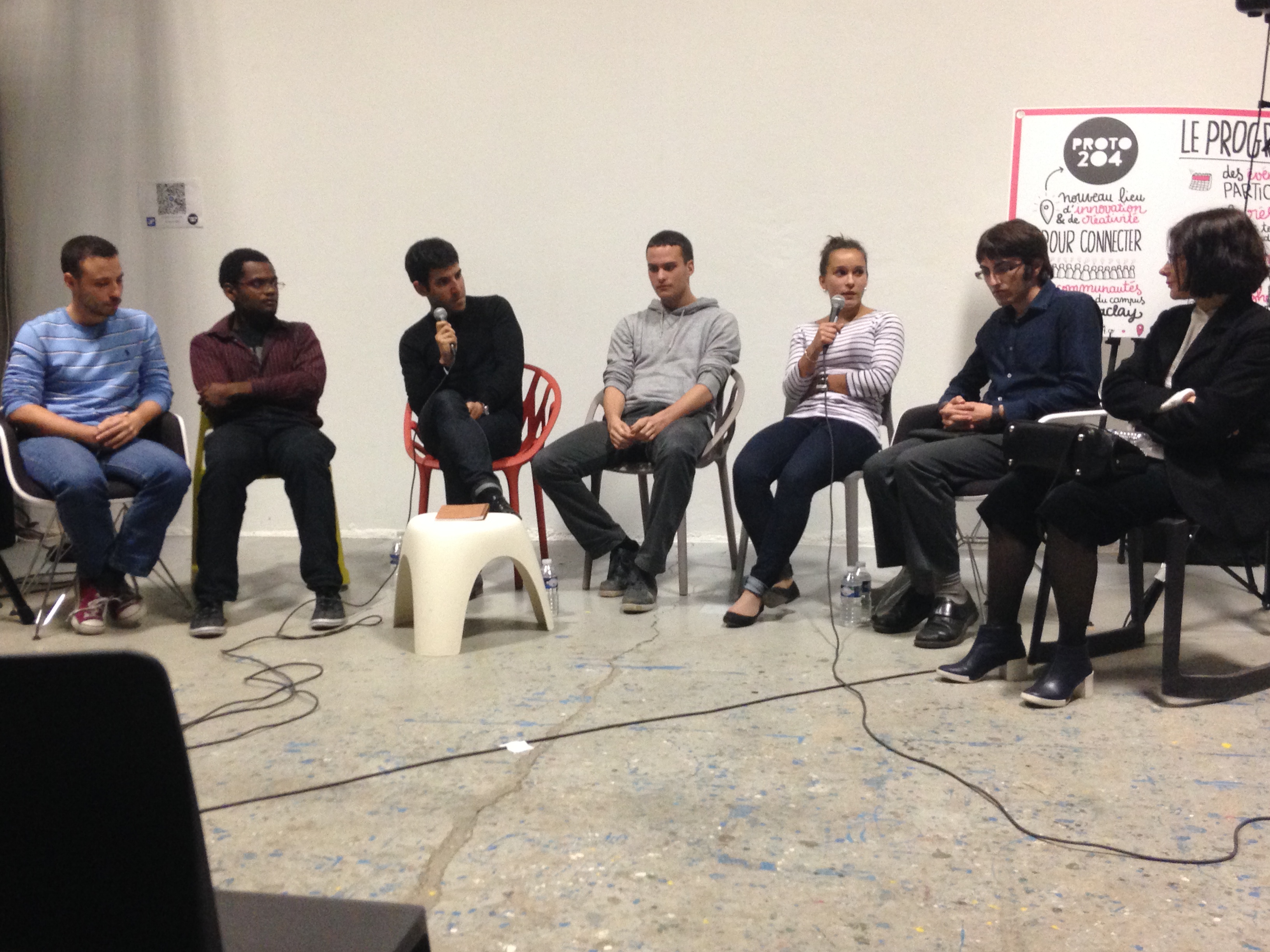Team:Paris Saclay/Outreach/Events/Curiositas
From 2014.igem.org

Curiositas
Curiositas, held at Orsay, is art-and-science festival that took place on October 4th to 9th. During an interactive debate named "BioArt in the light of ethics", our teams talked with Marion Laval-Jeantet, artist and promoter of the festival, the Parisian iGEM teams (Paris Bettencourt and Evry teams) and the audience. The debate was facilitated by a mediator, Alexandre Peluffo, biologist and ethics student.
Every IGEM team described their projects and Marion Laval-Jeantet went back over her bioart project: she has injected herself with horse blood plasma. The ultimate goal is to explore trans-species relationships: the project was more artistic and sentimental-oriented than pure science applications. The theoretical part was done on a French lab for purification of horse blood and separation of all immunoglobulins. She prepared her body to accept different horse immunoglobulins over the course of several months before the real injection of horse blood plasma. This project was a success and this experience has provided data for many studies on immunoglobulin use in medicine.
One of the questions in the debate was the definition of life. The subject was introduced by a quote from biologist François Jacob "There are no life in labs". Marion Laval-Jeantet expressed two things: first, definition of life is at the center of bioartists' work. Secondly, different artists' visions create different definitions. So there is not a consensual definition of life nowadays. Other aspects of life definition were more developed on our Ethics part.
Another developed point concerned relations between humans and other living beings. Some participants said that ethical committees unconsciously used an artificial hierarchy of living beings: some of them are placed before others without any biological or scientific basis. An explanation would be of psychological order: we feel closer to animals than bacteria because animals can react to stimuli and show reactions which can be similar to human feelings. We thus set up a better legislation to protect animals.
 "
"






